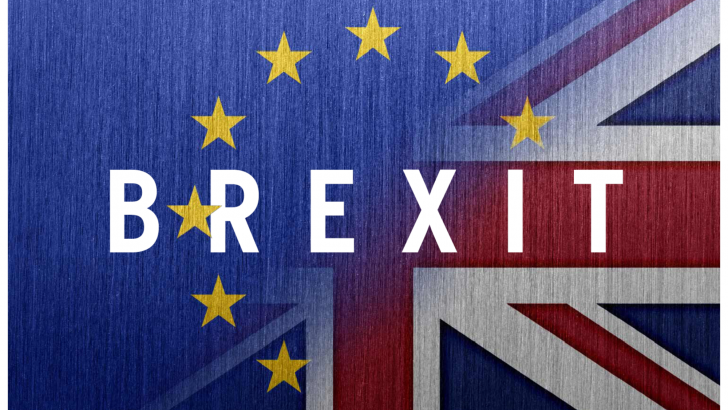Ever since the election results were confirmed, we Brits have been speaking a lot of ancient Greek.
For a start, there’s the hubris of the prime minister, Theresa May, in calling an election to secure a strong, stable government to better negotiate with Brussels, only to find herself weak and wobbly in a hung parliament, 12 seats down and dependent on the DUP to form a government.
The Conservatives won, of course, in the narrow sense that theirs is the largest party (316 seats to Labour’s 265), but it’s a Pyrrhic victory, entailing a toll so devastasting that it is tantamount to defeat.
Indeed, the one doing the victory lap is May’s nemesis, Labour’s Jeremy Corbyn, whose bolt to the left, promising billions in extra spending, galvanised young voters and millions of ordinary people concerned about social services – above all health – creaking under the strain of years of spending cuts.
This was a realignment election in an age of political realignment, a reverberation from last year’s Brexit vote that was badly misjudged by May and successfully read by Corbyn. Her plan was to reach out to Leave supporters in the poorer north who had voted UKIP – a single-issue party which led the campaign to leave the European Union – in previous elections while his was to create a new coalition of public sector workers, urban liberals and young people.
Labour’s new voters turned out to be real, but May’s were not. As she predicted, the UKIP vote collapsed, but it went to Labour. On the largest voter turnout (close to 70%) since the early 1990s, Labour experienced the biggest swing in its direction since World War II.
There are two big reasons behind this extraordinary political upset, and some smaller ones.
Both Leavers and Remainers are deeply concerned about Brexit: the massive impact it will have, our unpreparedness for it, and the apparent willingness of the Conservatives to drop out of the European Union without a sensible arrangement to remain part of the single market.
“No deal is better than a bad deal,” was May’s refrain. It went down badly with Tory Remainers, who fear a future of isolation as well as years of economic uncertainty.
Although their election statements got little play in the media, the Catholic and Anglican bishops had emphasised this issue of Britain’s future place in the world, expressing anxiety about its openness to refugees and the threat to its alliances of solidarity. Britain’s voters and its bishops appear to have been in sync.
The second big factor is the background of real wages falling and property prices slumping; Brexit is beginning to bite, and people are feeling the pain. (To add insult to injury, the EU is coming out of its low-growth trough.) At such times, people feel extra concern for safety nets and social services.
Anxiety
The Tories offered no real response to this anxiety, claiming vaguely they would seek the best possible trade deals with Europe and the rest of the world. It sounded complacent, and unreal. At the same time, they offered little by way of public spending boosts to meet the needs of the health service.
Labour’s offer was unreal, too – a massive tax hike that would surely scare off investment – but at least it was an offer: for long-term infrastructural spending to create jobs, and serious increases in state spending.
Corbyn’s sub-Marxist economics may not withstand serious scrutiny, but that mattered less than showing he was in touch with people’s concerns and had a plan.
Landslide
May, conversely, was punished for staying in her soundbite bubble. The second poll in just two years – not including last year’s referendum – it felt like an unnecessary election, called to serve the interests of the Conservative Party, not the country. Voters felt they were being taken for granted, their only purpose to give May a landslide she didn’t deserve.
Her disastrous campaign, which her strategist Lynton Crosby tried to make all about her, rested on the simple idea that faced with a choice between her and Corbyn to negotiate with Europe, the nation would fall at her feet.
The election did become about her, but about her hamartia or fatal flaw. Under the spotlight, she came over as robotic, complacent, and patronising, endlessly repeating the same slogans (“strong and stable” and “coalition of chaos”) and never answering direct questions.
She helicoptered from one stage-managed photo op to the next, even neglecting to take part in a TV debate with other leaders, for which she was excoriated. Corbyn, by contrast, took trains everywhere and was greeted by rapturous young crowds, to whom he explained his manifesto in nerdy detail.
May’s biggest mistake was to announce, early on in the campaign, a major shift in funding long-term elderly care by including the value of people’s houses.
It wasn’t a silly policy, but announced so badly that it quickly span out of control, allowing opponents to deride it as a “dementia tax” and leaving old people – a natural Tory constituency – feeling insecure. By the time May had corrected the policy, the “strong-and-stable” slogan looked massively silly.
Then came the terrorist attacks in Manchester and London. She should have benefited: normally, emergencies benefit incumbents, allowing them to look statesman-like.
Instead, as news emerged of the extent of the threat represented by 3,000-odd jihadists in Britain, May’s Home Secretary record of cuts to police numbers came under scrutiny. By the time she was threatening to rip up human rights laws to better pursue ISIS, she had begun to look desperate.
Oddly, Corbyn’s own record of opposition to anti-terrorism laws – delightedly picked over by the right-wing press – didn’t seem to do him any harm. People preferred to judge him not on his past but what he was going to do now. When he called for significant real-terms increase in police spending so jihadists could be properly monitored, that made sense.
The other story of the night was the collapse of the centre. Between May and Corbyn was a vast, 1970s-style classic choice between right and left that should have bolstered the Liberal-Democrats.
But despite some gains – four seats, bringing them to 12 – they lost some high-profile figures, including former deputy prime minister Nick Clegg, and failed to benefit massively from the Remain vote.
Clegg rightly points out that MPs will now need to find a cross-party consensus on a more moderate approach to Brexit or the UK faces more elections until one party wins a majority, which would devour much of the two-year negotiating window.
May is determined to avoid that, convinced she can form a minority government with the ongoing support of the pro-Brexit DUP.
But if she is in league with the DUP, can Westminster any longer claim to be a neutral presence in Northern Ireland at a time when the power-sharing deal between Sinn Féin and the DUP has broken down?
On the other side of the channel, of course, the longstanding partners from whom we now need to negotiate our divorce look on in bewilderment. It is hard to imagine a modern democracy putting itself into such a vulnerable position.
May went to the country looking for a mandate, and was refused it. She remains, but as a massively diminished figure. The Tory party is already sharpening its knives. Many say she’ll be gone by Christmas.
Meanwhile, the future of the UK’s place in the world looks even more bizarrely uncertain than it already was.
Austen Ivereigh is author of The Great Reformer: Francis and the Making of a Radical Pope.


 Austen Ivereigh
Austen Ivereigh
